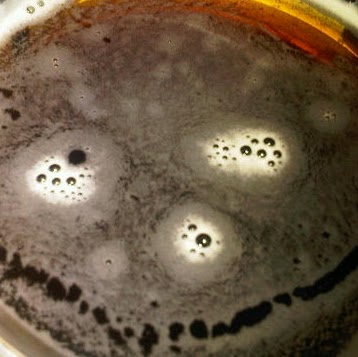Donald James Macallister
age ~72
from Madison, WI
- Also known as:
-
- Donald J Macallister
- Donald J Mcallister
- Don J Macallister
- Donald J Macalister
- Deborah Macallister
Donald Macallister Phones & Addresses
- Madison, WI
- 927 Byrne St, Houston, TX 77009
- 26 Meadow Rose Pl, Spring, TX 77382 • 281 364-7630
- 4900 Stanford Ave, Dallas, TX 75209
- 3601 Waynoka Dr, Carrollton, TX 75007 • 972 394-7510 • 972 492-4510
- Starke, FL
- Montgomery, TX
- 26 Meadow Rose Pl, Spring, TX 77382 • 281 808-8757
Emails
Name / Title
Company / Classification
Phones & Addresses
Partner
MacAllister Heat, Vent & Plumbing Company,Inc
Plumbing Contractors
Plumbing Contractors
RFD 1, Box 90, Warner, NH 03278
603 456-2100
603 456-2100
Us Patents
-
Automated Material Balance System For Hydrocarbon Reservoirs Using A Genetic Procedure
view source -
US Patent:59240482, Jul 13, 1999
-
Filed:Mar 14, 1997
-
Appl. No.:8/818733
-
Inventors:Michael D. McCormack - Plano TX
Donald J. MacAllister - Carrollton TX
Richard F. Stoisits - Plano TX
Perry W. Scherer - Harrison NY
Tuan D. Ma - Anchorage AL -
International Classification:G06F 1900
-
US Classification:702 13
-
Abstract:A system for producing a material balance solution for well patterns in a hydrocarbon reservoir is described that automatically optimizes the fluid allocation factors for each well used in determining the solution. The system automatically optimizes estimates for the allocation factors to be used in the material balance solution by randomly generating a first generation of allocation factor strings, each string in the generation assigning allocation factors to each of the wells in the reservoir. A fitness function value is determined for each of the strings by evaluating a fitness function, wherein the fitness function comprises the sum of the differences between computed and measured field pressures for each pattern, and the sum of the differences between target allocation factors and the allocation factors specified within the string for each well. A succeeding generation of allocation factor strings is produced according to a genetic algorithm. The process of determining a fitness function value for each of the strings is then repeated for the succeeding generation.
-
Method For Recovery Of Hydrocarbons
view source -
US Patent:47154446, Dec 29, 1987
-
Filed:Oct 27, 1986
-
Appl. No.:6/923241
-
Inventors:Donald J. MacAllister - Carrollton TX
Virginia W. Pennington - Dallas TX -
Assignee:Atlantic Richfield Company - Los Angeles CA
-
International Classification:E21B 4316
E21B 4320 -
US Classification:166269
-
Abstract:A method for recovering hydrocarbons from a subterranean hydrocarbon-containing formation penetrated by at least two wellbores, said method comprising: (a) injecting a gaseous stream into the formation near the bottom of the formation through a first wellbore; (b) injecting an aqueous stream into the formation near the top of the formation through the first wellbore; and (c) recovering hydrocarbons from the formation through a second wellbore.
-
Automated Material Balance System For Hydrocarbon Reservoirs Using A Genetic Procedure
view source -
US Patent:6128579, Oct 3, 2000
-
Filed:Aug 25, 1998
-
Appl. No.:9/140121
-
Inventors:Michael D. McCormack - Plano TX
Donald J. MacAllister - Carrollton TX
Richard F. Stoisits - Plano TX
Perry W. Scherer - Harrison NY
Tuan D. Ma - Anchorage AK -
Assignee:Atlantic Richfield Corporation - Los Angeles CA
-
International Classification:G01V 338
-
US Classification:702 13
-
Abstract:A system for producing a material balance solution for well patterns in a hydrocarbon reservoir is described that automatically optimizes the fluid allocation factors for each well used in determining the solution. The system automatically optimizes estimates for the allocation factors to be used in the material balance solution by randomly generating a first generation of allocation factor strings, each string in the generation assigning allocation factors to each of the wells in the reservoir. A fitness function value is determined for each of the strings by evaluating a fitness function, wherein the fitness function comprises the sum of the differences between computed and measured field pressures for each pattern, and the sum of the differences between target allocation factors and the allocation factors specified within the string for each well. A succeeding generation of allocation factor strings is produced according to a genetic algorithm. The process of determining a fitness function value for each of the strings is then repeated for the succeeding generation.
-
Petroleum Production Optimization Utilizing Adaptive Network And Genetic Algorithm Techniques
view source -
US Patent:6236894, May 22, 2001
-
Filed:Dec 19, 1997
-
Appl. No.:8/994975
-
Inventors:Richard F. Stoisits - Plano TX
Kelly D. Crawford - Allen TX
Donald J. MacAllister - Carrollton TX
Michael D. McCormack - Plano TX -
Assignee:Atlantic Richfield Company - Chicago IL
-
International Classification:G05B 1302
-
US Classification:700 28
-
Abstract:A computer system and method of operating the same to optimize the operating conditions of a petroleum production field, in which a plurality of wells are arranged according to drill sites, and connected to one or more central processing facilities, is disclosed. In this disclosed embodiment, gas compression capacity is a significant constraint on the operation of the complex production field, and surface line hydraulic effects of well production are to be considered in the optimization. A genetic algorithm is used to generate, and iteratively evaluate solution vectors, which are combinations of field operating parameters such as incremental gas-oil ratio cutoff and formation gas-oil ratio cutoff values. The evaluation includes the operation of an adaptive network to determine production header pressures, followed by modification of well output estimates to account for changes in the production header pressure. Convergence of the genetic algorithm identifies one of the solution vectors as containing an optimal combination of field operating parameters that may be used by production personnel to set the operating conditions of the field.
Resumes

Donald Macallister
view sourceYoutube
Flickr
Classmates

Vancouver Technical Secon...
view sourceGraduates:
Susana Faria (1982-1986),
Don MacAllister (1955-1959),
Robert Cheyne (1961-1965)
Don MacAllister (1955-1959),
Robert Cheyne (1961-1965)
Googleplus

Donald Macallister
Get Report for Donald James Macallister from Madison, WI, age ~72






